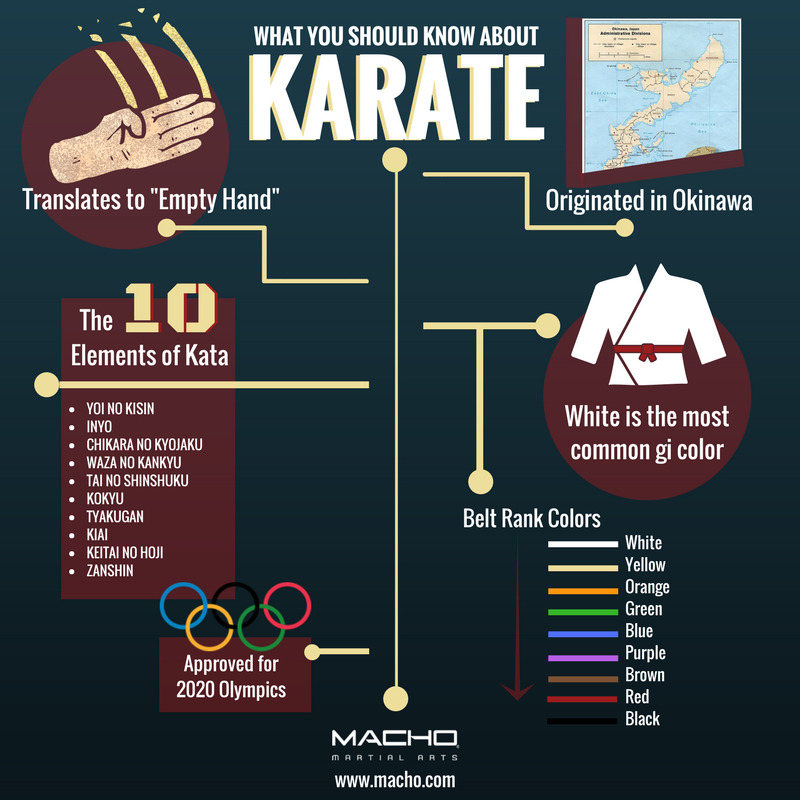5 Famous Martial Artists Who Transformed The Training Course Of Background
5 Famous Martial Artists Who Transformed The Training Course Of Background
Blog Article
Written By-Han Lyng
You may not understand it, yet the world has been formed by the activities of a select couple of martial musicians. These individuals have left an indelible mark on history, leading the way for generations of competitors and experts to come. They reinvented their respective arts, challenged the norms of society, and pushed the borders of what was thought possible.
In this post, we will certainly discover the lives and traditions of five popular martial musicians that transformed the training course of history. From the Daddy of Modern Martial Arts to the Greatest Samurai of Perpetuity, these fabulous figures have influenced millions around the globe. linked web-site have actually come to be household names, identified with guts, technique, and determination.
Through their mentors and actions, they have shown us what it implies to be a true warrior. So, join us as we explore the remarkable globe of fighting styles and find the effect that these 5 individuals carried background.
Bruce Lee: The Dad of Modern Fighting Style
You can't discuss fighting styles without pointing out Bruce Lee - he's the one that revolutionized the whole industry and brought to life the modern period of combating. His impact still reverberates today, and much of the techniques he established are still made use of by boxers around the globe.
Lee was not just a knowledgeable martial musician but additionally a thinker, actor, and filmmaker who aided bring Eastern martial arts to the Western world. Lee's most substantial payment to martial arts was his advancement of Jeet Kune Do, a fighting design that emphasized simplicity, directness, and effectiveness. He believed that martial artists must make use of only the techniques that helped them, instead of sticking to a rigorous collection of regulations or kinds.
He likewise highlighted the significance of fitness, mental self-control, and self-awareness, arguing that fighting styles were not almost battling, but also regarding individual growth and development. martial arts training in india remains to motivate martial musicians and non-martial artists alike, and his influence on the world of fighting will certainly never ever be neglected.
Miyamoto Musashi: The Best Samurai of Perpetuity
Oh boy, Miyamoto Musashi is one fierce samurai. He's the greatest of perpetuity, and don't you forget it.
Birthed in 1584, Musashi was an epic swordsman who was undefeated in over 60 duels. He was likewise a proficient calligrapher, painter, and theorist. He composed 'The Book of 5 Rings,' a traditional message on approach and fighting styles.
Musashi's life had plenty of experience and risk. He combated in the Fight of Sekigahara, where he sustained the successful Tokugawa clan. Later on, he became a roaming samurai, testing other swordsmen to battles and developing his abilities. He even battled against a college of spear-wielding warriors, beating them with just a wood sword.
Musashi's heritage continues to influence martial artists today, and his name is identified with the samurai spirit of discipline, guts, and honor.
Ip Man: The Master That Brought Wing Chun to the Globe
Ip Guy was an epic martial arts master that popularized and spread out the Wing Chun design to the world. He was birthed in the Foshan city of Guangdong district in China and grew up learning fighting styles from numerous educators. Ip Male's skills in Wing Chun were unrivaled, and he ended up being referred to as a master in the art. He was also understood for his humbleness, technique, and respect for the martial arts.
Ip Male's tradition lives on today, and his payments to the globe of martial arts are countless. Here are 3 reasons he is considered one of the best martial musicians of all time:
- He educated the legendary Bruce Lee. Ip Male was the first fighting styles master to show the young Bruce Lee, that took place to become one of the most popular actors and martial musicians of perpetuity.
- He advertised the tranquil use of fighting styles. Ip Guy thought that martial arts ought to be used for protection and not for physical violence. He constantly promoted the relaxed use fighting styles, and his students followed his example.
- He spread out the Wing Chun design to the world. Ip Man was instrumental in spreading out the Wing Chun style to the globe. Read Even more taught several trainees, and his teachings at some point became popular in Hong Kong and other parts of the globe. Today, Wing Chun is exercised by countless people worldwide, and it owes a lot of its appeal to Ip Male.
Verdict
Congratulations! You've simply discovered five popular martial musicians that altered the course of history.
https://www.tor.com/2021/06/29/the-history-and-politics-of-wuxia/ was the dad of contemporary martial arts. Miyamoto Musashi was the best samurai of perpetuity. Ip Man was the master who brought Wing Chun to the globe.
Their traditions have influenced plenty of individuals to pursue martial arts, both as a means of self-defense and as a way to boost their physical and mental health. As a matter of fact, many of today's top martial musicians credit history these legendary figures as their biggest influences.
For instance, allow's have a look at the case of UFC champion Conor McGregor. McGregor has frequently cited Bruce Lee as one of his largest ideas and has actually also incorporated Lee's famous "resemble water"philosophy into his fighting design.
By studying the methods and philosophies of these martial arts leaders, McGregor has turned into one of the most effective and well-respected competitors in the world.
So whether you're a skilled martial musician or simply starting out, keep in mind the words of these legends and use their trainings to guide you on your journey. Who understands, maybe eventually you'll be the following martial arts symbol to alter the program of history.
